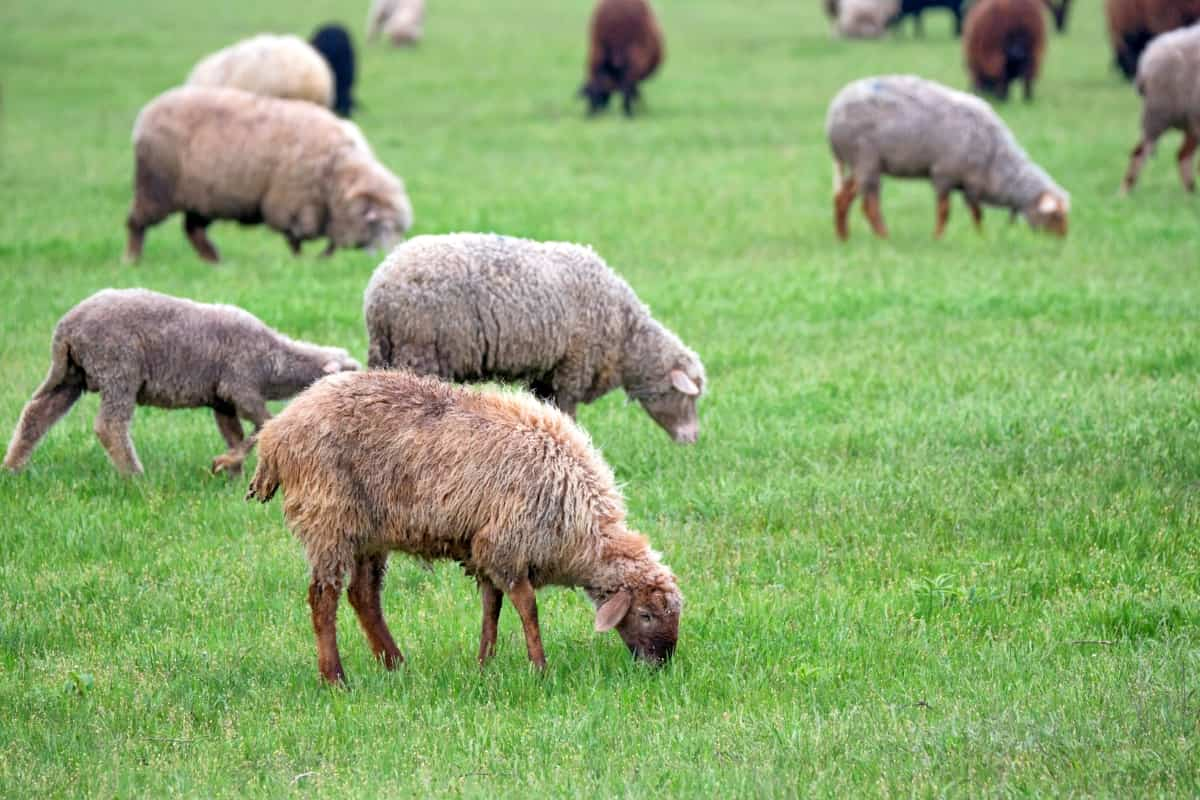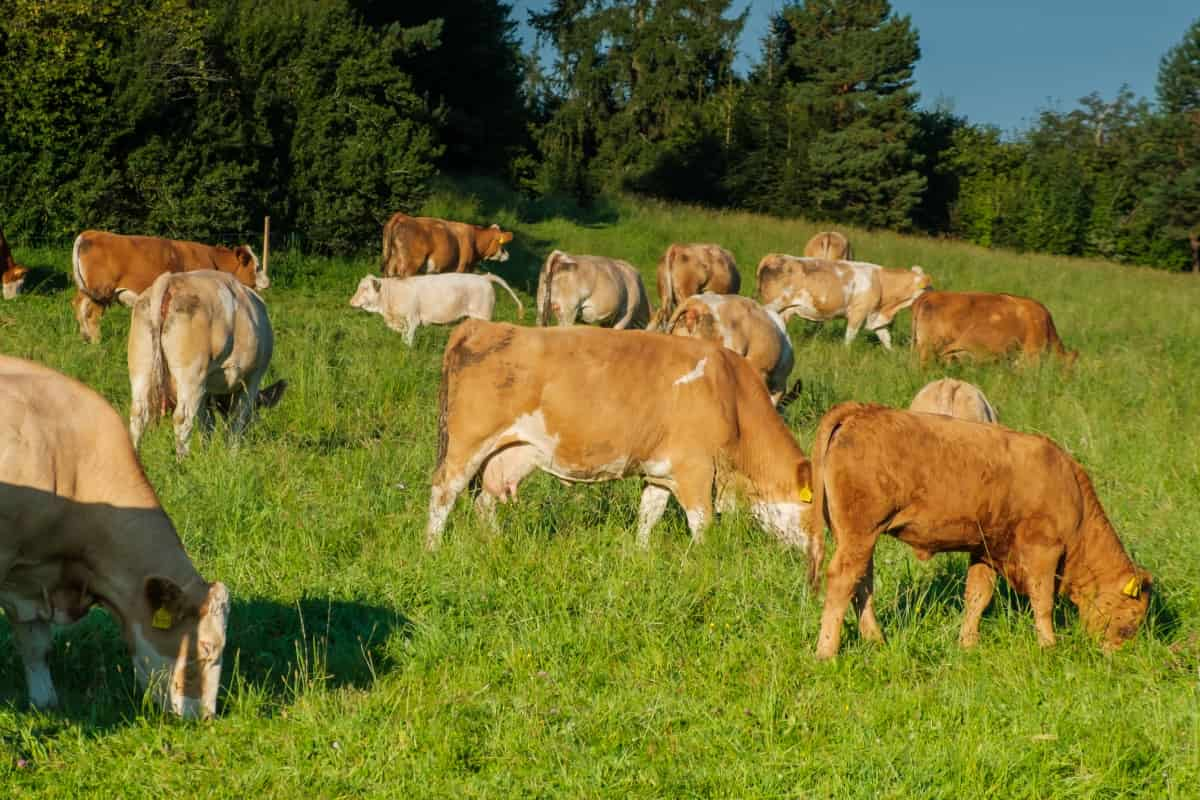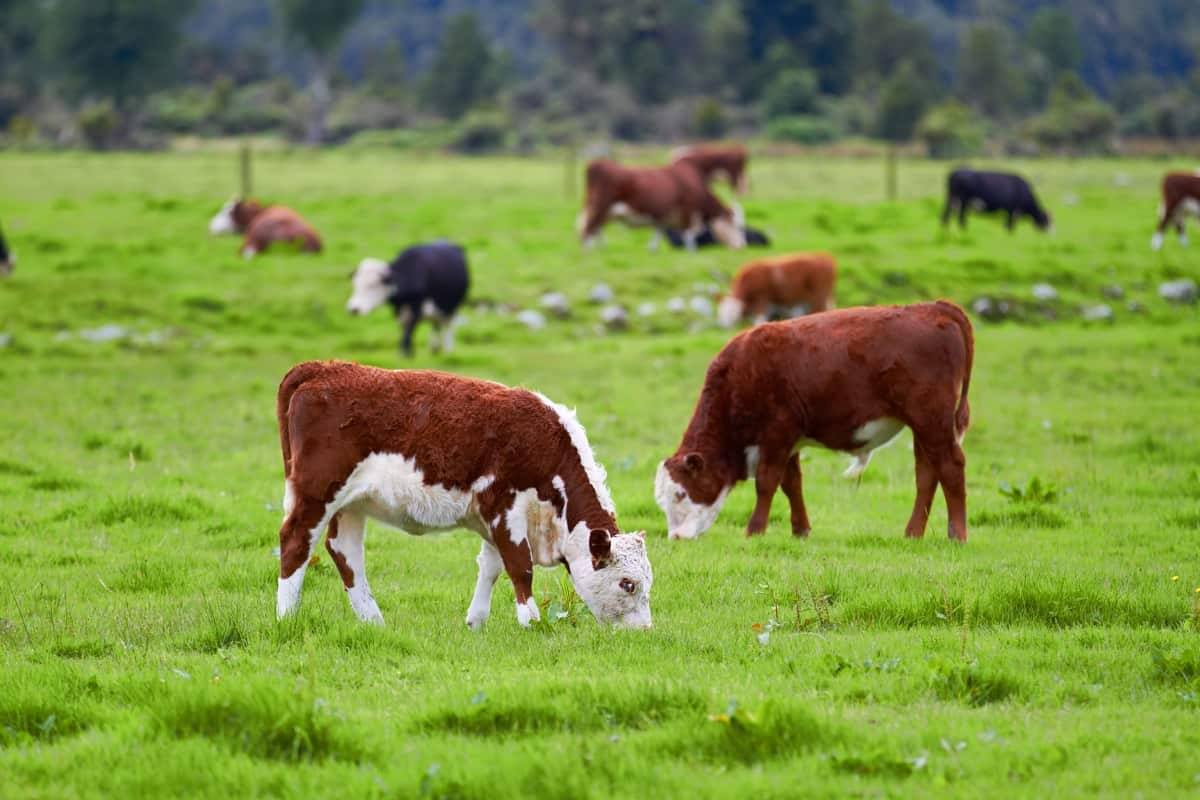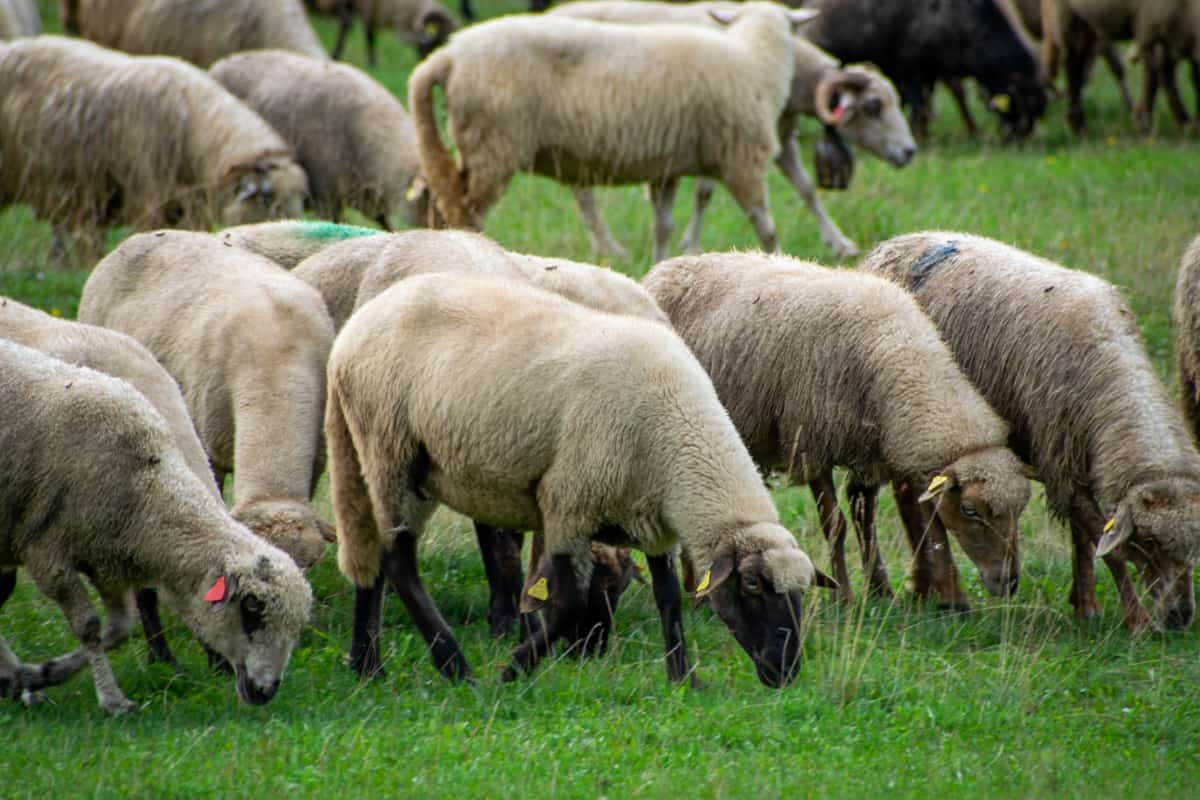Pasture parasite management in livestock is a crucial aspect of maintaining the animal’s health. Effective pasture parasite management is crucial for the overall health and well-being of livestock. By implementing proper strategies to control parasites, farmers can ensure that their animals remain healthy and productive.

Pasture Parasite Management
Common Pasture Parasites in Livestock
The most prevalent parasite in livestock is the roundworm. These worms can cause weight loss and reduced productivity in your animals. Look out for signs such as diarrhea or a dull coat, which may indicate a roundworm infestation. Another common parasite is the hookworm. Ticks are also a concern when it comes to pasture parasite management.
Regularly check your animals for ticks, especially in warm months when they are most active. Flies are another nuisance that farmers need to address. Not only do flies annoy your animals with constant buzzing and biting, but they also spread diseases like pink eye or summer sores among them.
Comprehensive Parasite Management Plan
A well-designed parasite management plan can help minimize the impact of parasites on your animals’ health and overall productivity. To develop an effective plan, start by understanding the specific challenges and risks posed by parasites in your area. Different regions may have different types of parasites that affect livestock, so it’s important to identify which ones are prevalent in your locality.
Next, assess the current state of parasite control on your farm. This includes evaluating factors such as pasture management practices, animal stocking densities, and treatment history. By assessing these variables, you can determine areas where improvements can be made. Consider implementing rotational grazing strategies to reduce parasite exposure for your animals. Implementing effective pasture management techniques in goats plays a crucial role in reducing parasites and ensuring the well-being of your herd.
Effective Rotational Grazing Strategies
Rotational grazing is a powerful tool for managing parasites in livestock. Divide your pasture into smaller paddocks or sections to allow for rotation. This not only prevents overgrazing but also limits exposure to parasite larvae present in the grass. By giving each section a sufficient rest period, you break the cycle of reinfection and give time for larvae to die off.
In case you missed it: Protecting Your Flock: A Step-By-Step Guide to Chicken Parasites

Timing is crucial when it comes to rotational grazing. Consider integrating other species into your rotational grazing system. Parasite control strategies in cattle grazing are essential for maintaining herd health and productivity. Additionally, practicing strategic deworming within a rotation plan can provide an extra protection layer against parasites. Pasture management for sheep parasite reduction is essential to implement effective strategies to reduce their impact.
Integrating Chemical and Natural Parasite Control Methods
By combining these two approaches, farmers can maximize parasite control while minimizing potential harm to their animals and the environment. Chemical dewormers have long been a staple in parasite control programs. They offer quick results and are highly effective at reducing worm burdens. However, repeated use of chemical dewormers can lead to resistance development in parasites, rendering them less effective over time.
To combat this issue, many farmers are turning towards natural alternatives for parasite management. Herbal dewormers containing plant-based ingredients such as garlic or wormwood have shown promising results. By managing parasites in dairy cows on pasture, farmers can minimize the impact of parasitic infections on milk production, reproductive performance, and overall animal welfare.
Utilizing Fecal Egg Count Analysis
Fecal egg counting is a valuable tool for livestock farmers to assess the parasite burden in their animals. By determining the number of worm eggs excreted per gram of feces (EPG), farmers can make informed decisions about parasite control measures. The process involves collecting fresh fecal samples from animals and sending them to a laboratory for analysis. The lab technicians will then examine the samples under a microscope and count the number of worm eggs present.
This information helps farmers determine if parasites are becoming resistant to certain deworming treatments or if current management practices are effective. It also allows for more sustainable parasite control strategies by minimizing the development of anthelmintic resistance. Fecal egg count analysis provides valuable insights into the effectiveness of grazing management practices as well.
Exploring Herbal and Natural Dewormers
These natural remedies can help control parasite populations without the negative effects of synthetic drugs. One popular option is garlic, which has been used for centuries as a natural dewormer. Adding fresh garlic to their feed or using garlic powder supplements can provide an effective means of parasite control. Another herbal option is diatomaceous earth (DE), a fine powder made from fossilized remains of marine phytoplankton. It can be mixed into animal feed or spread around pastures where animals graze.
While herbal and natural dewormers can be effective at controlling parasites, it’s important to remember that they may not offer the same level of efficacy as chemical treatments. Regular monitoring through fecal egg counts is crucial when using these alternatives, as it allows farmers to assess whether their chosen method is effectively managing parasite loads.
The Role of Pasture Management
Pasture management plays a crucial role in reducing the burden of parasites on livestock. By implementing effective pasture management techniques, farmers can create an environment that is less affected by parasites and helps maintain the health of their animals. Maintaining clean and well-maintained pastures is also essential in minimizing parasite transmission. Adequate nutrition provided through well-managed pastures strengthens animal immune systems and makes them less susceptible to parasitic infections.
Boosting Livestock Immunity
Just like humans, animals need a healthy immune system to fight off infections and diseases. And one way to support their immunity is through proper nutrition. Feeding with a balanced diet can help to improve the overall health of your animals and make them more resilient against parasites.
Including high-quality forages, such as fresh grass or hay, can provide essential vitamins and minerals that are crucial for maintaining optimal immune function. It’s important to integrate these strategies with other management practices, like rotational grazing and regular deworming protocols, for comprehensive parasite management on your farm.
Managing Anthelmintic Resistance
Anthelmintics, commonly known as dewormers, have been a crucial tool in controlling and treating parasitic infections in livestock. However, the overuse and misuse of these drugs have led to the emergence of anthelmintic resistance, posing a significant challenge to livestock health. To combat this issue, sustainable practices need to be implemented on farms. Sustainable parasite management is a crucial aspect of livestock farming that aims to control the impact of parasites on animals and the environment in a sustainable manner.
In case you missed it: Livestock and Dairy Farming Subsidies: Financial Assistance by the Government of India

One such practice is strategic deworming based on fecal egg counts (FECs). By regularly monitoring FECs and only treating animals with high worm burdens, we can reduce unnecessary use of anthelmintics and slow down the development of resistance. Another approach is implementing targeted grazing strategies. Additionally, improving overall herd health through proper nutrition plays an important role in reducing parasites.
Impact of Climate Change
Climate change is a topic that has gained significant attention in recent years, and rightfully so. The changes in temperature patterns, rainfall levels, and overall weather conditions can have far-reaching effects on various aspects of our environment. One area that is often overlooked but equally important to consider is the impact of climate influence on parasite dynamics in pastures.
With rising temperatures and changing precipitation patterns, parasites that thrive in certain climatic conditions may experience shifts in their distribution and population sizes. Additionally, climate change can also influence the life cycle and development of parasites.
In case you missed it: Partnerships for Profit: Maximizing Returns through Livestock Contract Farming

Conclusion
Parasites such as worms, ticks, flies, and mites can have detrimental effects on livestock productivity. They can cause weight loss, poor growth rates, reduced milk production, anemia, and even death if left unchecked. Therefore, farmers need to prioritize parasite management as part of their overall herd health program. Effective pasture parasite management begins with identifying common parasites that affect livestock species like cattle, sheep, goats, or dairy cows.
- Feed Your Flock for Less: Top 10 Tips to Save on Chicken Feed
- Ultimate Guide to Ossabaw Island Hog: Breeding, Raising, Diet, and Care
- Hatching Answers: The Top 10 Reasons Your Chickens Aren’t Laying Eggs
- Eggs and Economics: Breaking Down the Cost of Raising Backyard Chickens
- Defend Your Greens: Proven Methods to Keep Iguanas Out of Your Garden
- Ultimate Guide to Cinnamon Queen Chicken: A Comprehensive Guide for Beginners
- Ultimate Guide to California Tan Chicken: Breeding, Raising, Diet, Egg-Production and Care
- Ultimate Guide to Marsh Daisy Chicken: Breeding, Raising, Diet, and Care
- 10 Types of Chicken Farming Businesses You Can Start for Profits